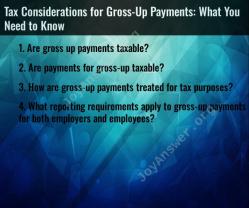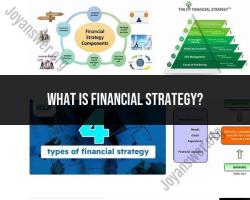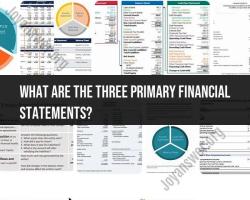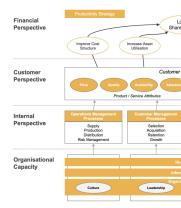What skills are required to be a financial analyst?
Financial analysts play a critical role in evaluating the financial health and performance of companies, providing investment recommendations, and making financial forecasts. To excel in this profession, individuals need a combination of technical skills, analytical abilities, and soft skills. Here are the key skills required to be a successful financial analyst:
1. Financial Analysis Skills:
- Financial Statement Analysis: Proficiency in analyzing financial statements (income statements, balance sheets, cash flow statements) to assess a company's financial performance and stability.
- Ratio Analysis: Ability to calculate and interpret financial ratios (e.g., liquidity ratios, profitability ratios, leverage ratios) to evaluate a company's financial health.
2. Excel and Spreadsheet Skills:
- Strong knowledge of Microsoft Excel and other spreadsheet tools for data analysis, modeling, and financial calculations.
- Skills in using functions, pivot tables, and data visualization techniques in Excel.
3. Data Analysis and Quantitative Skills:
- Proficiency in data analysis and quantitative techniques to process financial data, identify trends, and make informed decisions.
- Statistical analysis skills to assess risk and uncertainty in financial models.
4. Financial Modeling:
- The ability to create and work with financial models to forecast financial performance, conduct valuation, and analyze investment opportunities.
- Knowledge of discounted cash flow (DCF) analysis and other valuation methods.
5. Accounting Knowledge:
- Understanding of accounting principles and practices, including accrual accounting, revenue recognition, and GAAP (Generally Accepted Accounting Principles).
- Knowledge of financial accounting and reporting standards.
6. Investment and Portfolio Management:
- Familiarity with investment strategies, asset allocation, and portfolio management concepts.
- Skills in assessing investment risks and returns.
7. Economic Analysis:
- Knowledge of macroeconomic and microeconomic principles and their impact on financial markets and investments.
- Ability to analyze economic indicators and trends.
8. Financial Software and Tools:
- Proficiency in using financial software and tools, such as Bloomberg Terminal, FactSet, or other industry-specific software.
- Experience with trading platforms and investment research tools.
9. Communication Skills:
- Strong written and verbal communication skills to convey complex financial information to colleagues, clients, and stakeholders.
- The ability to create clear and compelling reports and presentations.
10. Problem-Solving Skills:- Effective problem-solving skills to identify financial challenges, propose solutions, and make strategic recommendations.- Critical thinking abilities to assess risks and opportunities.
11. Attention to Detail:- Meticulous attention to detail is essential for financial analysts when reviewing financial statements, conducting audits, and creating financial models.
12. Time Management and Organization:- Efficient time management and organizational skills to meet deadlines, handle multiple projects, and prioritize tasks effectively.
13. Industry Knowledge:- A deep understanding of the industry or sector in which you are analyzing companies, as industry dynamics can significantly impact financial analysis.
14. Ethics and Integrity:- A commitment to ethical conduct and a strong sense of integrity when handling sensitive financial information and making investment recommendations.
Financial analysts often work in roles such as equity analysts, credit analysts, investment analysts, or financial planners. The specific skills required may vary depending on the specialization and the employer's expectations, but these fundamental skills are essential for success in the field of financial analysis. Continuous learning and staying updated with industry trends and regulations are also critical for financial analysts to excel in their careers.
Financial analysts are responsible for analyzing financial data to make recommendations about investments, business strategies, and other financial decisions. To be successful in this role, financial analysts need to have a strong understanding of accounting, finance, and economics. They also need to be able to think critically, solve problems, and communicate effectively.
Here are some of the essential skills and competencies required for a financial analyst:
- Accounting: Financial analysts need to have a strong understanding of accounting principles and practices. This includes understanding how to read and interpret financial statements, such as the balance sheet, income statement, and cash flow statement.
- Finance: Financial analysts need to have a strong understanding of financial concepts and principles, such as time value of money, risk and return, and asset valuation.
- Economics: Financial analysts need to have a basic understanding of economic principles, such as supply and demand, market structure, and economic growth.
- Critical thinking: Financial analysts need to be able to think critically and solve problems. This includes being able to identify and analyze financial trends, assess risk, and develop recommendations.
- Communication: Financial analysts need to be able to communicate effectively, both verbally and in writing. This includes being able to communicate complex financial concepts in a clear and concise manner.
In addition to the essential skills listed above, financial analysts may also need to have specific skills depending on their industry or area of specialization. For example, financial analysts who work in the investment industry may need to have skills in portfolio management and security analysis. Financial analysts who work in the corporate world may need to have skills in financial modeling and budgeting.
Here are some tips for succeeding as a financial analyst:
- Develop your technical skills: Financial analysts need to have a strong understanding of accounting, finance, and economics. There are a number of ways to develop your technical skills, such as taking courses, reading books and articles, and attending conferences.
- Gain experience: Experience is essential for success in the financial analyst field. You can gain experience by working as an intern or associate financial analyst. You can also gain experience by volunteering your financial skills to non-profit organizations.
- Network: Networking is a great way to learn about new opportunities and connect with other financial professionals. Attend industry events and connect with people on LinkedIn.
- Stay up-to-date: The financial industry is constantly changing, so it is important for financial analysts to stay up-to-date on the latest trends and developments. You can stay up-to-date by reading industry publications, attending conferences, and taking online courses.
By developing your skills and experience, you can increase your chances of success as a financial analyst.













